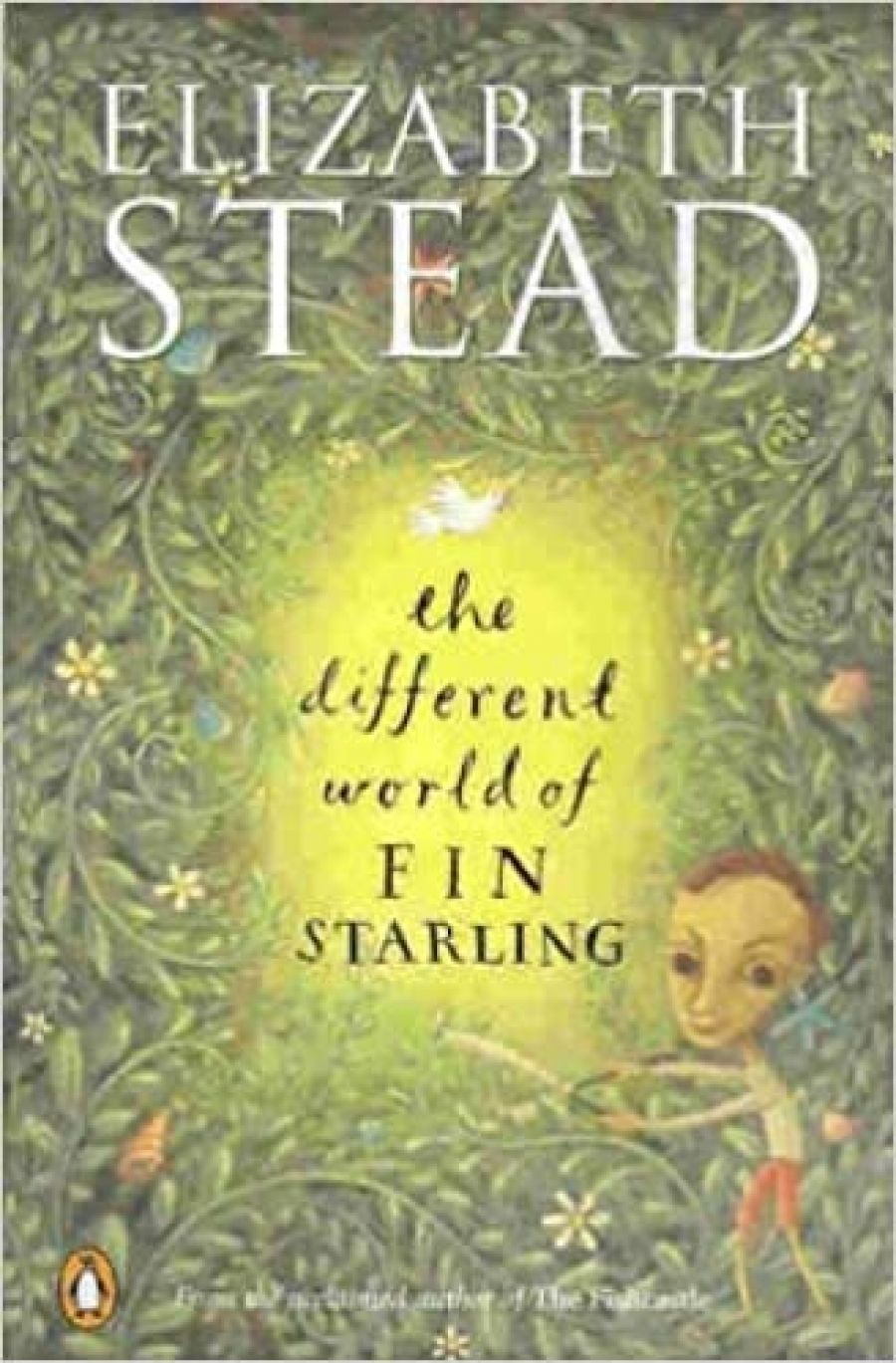
- Free Article: No
- Contents Category: Fiction
- Review Article: Yes
- Online Only: No
- Custom Highlight Text:
Wagner’s Creek is a rundown seaside village full of fibro shacks, rubbish and the ‘dirt poor’: ‘Their boredom and despair was as high as the dry grass in their yards and as deep as the ruts in the road – and their hearts seemed as broken as their hanging gates and peeling fences.’ Elizabeth Stead’s other novel, The Fishcastle (2000), was also set in a seaside village where, as in Wagner’s Creek, strange things happen. Time goes more slowly in Wagner’s Creek, and the weather is different from everywhere else.
- Book 1 Title: The Different World of Fin Starling
- Book 1 Biblio: Penguin, $22.95 pb, 313 pp
Paradoxically, Fin also has an affinity with plants and creatures. If there is another connection between Elizabeth Stead and her ancestors it is with her grandfather, the naturalist and conservationist David George Stead. The most lyrical passages in the book are to do with the abundance and beauty of the plants and produce that Fin encourages to grow. So pervasive is Fin’s influence on the town that the inhabitants lobby the local council for a new road and enter themselves in the Tidy Town Award.
What messages are we to find in this strange fable, in which portents keep jumping out from behind the trees? An itinerant artist arrives in the town with a fetish for the queen mother; Fin falls in love with a flock of cockatoos; just when the lazy locals get themselves sorted out, they are nearly wiped out by a storm of supernatural dimensions.
Is the point of this story the arbitrariness or capriciousness of life – that no matter how hard you try, it inevitably swipes us? Or did the dirt poor of Wagner’s Creek overreach themselves by enticing trampling tourists to their town, exploiting the bounties of nature? Should Fin’s mum Molly have resisted the urge to become a capitalist, setting up a little café on her front verandah?
The reader is confused by a surfeit of enigmas. At the same time, the characters are compromised by their responsibilities as archetypes. Molly, Fin’s mum, is the earth mother. She is probably the most developed character in the story and, for that reason, the most attractive. As well as sexual favours, she feeds her clients on soup ‘always simmering on a slow stove with potatoes and beans and bacon and a pinch of fresh chilli’. The food is delicious in this book and Molly is improbably sweet and untainted by her occupation. She also has a predilection for seeing life through cinematic glasses. When the storm arrives, Molly thinks: ‘If this morning had been a movie … they would have put off filming until the weather read the script.’ And while Molly does not understand her strange and silent son, her love for him is consistent and touchingly described.
Even though Molly is the most developed character, her range is still limited by her role. And the problem with a silent hero is that we never get to know him. Certainly, in this case, the omniscient author/narrator isn’t about to share inside information with the reader. Fin Starling remains an enigma to the end.
Stead has a remarkable ability to create bravura set pieces, such as the storm that devastates the village. Her prose is consistently eloquent and inventive. But there is an ephemeral quality to the novel that left this reader unsatisfied. Magic realism has traditionally been used by writers such as Milan Kundera and Gabriel García Márquez as a sort of release from, or alternative to, their countries’ dire circumstances. Notwithstanding the fabulous quality of the episodes in these books, they generally serve the purpose of illuminating the real world. However, rather than provide the reader with illumination or contrast, the surreal aspects of Stead’s novel tend to confuse. Perhaps my difficulty with The Different World of Fin Starling is a product of my expectations of the genre. Instead of looking for the profound in every incident, maybe I should simply have looked for the joke.


Comments powered by CComment